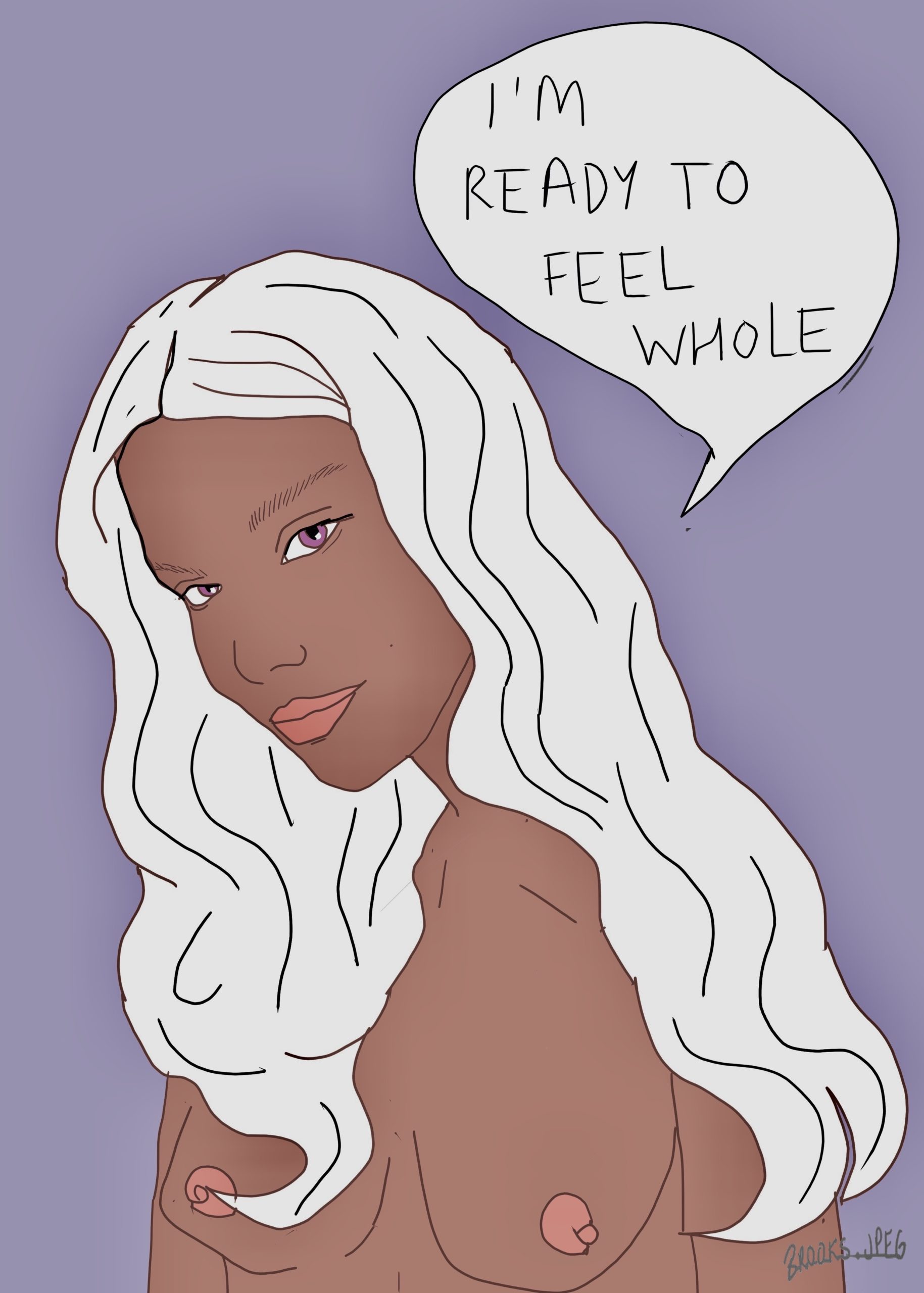[Written by Rowen Leverentz]
[Image Credits: Emily Millar]
Content warning: Possible inference of violence against women
If someone speaks to you, they intend to be heard.
Female speech, my speech, is not often acknowledged or taken seriously. This happens in art, in relationships and is one of the most frustrating things… how can you speak up if no one is listening? I’ve often felt that, when I spoke my mind through poetry, I could make my opinion heard; I could make it take up space that can’t be spoken over.
I am fortunate in comparison to so many women around the world. But still, almost every man I have ever been with has marginalised me and the two things I value most, my freedom and my sexuality. Constantly I have ended up in situations where I have to express that I do not want a relationship where I am romanticised as mysterious and edgy, or where my previous relationships with women aren’t viewed as genuine, as if my core values only exist for them. Maybe it’s just my bad luck, but I know many women who have been made to feel the same way. It makes me, us, feel unseen.
This is where poetry is so fulfilling: writing the words down externalises them and you can see yourself in your work. There is a valuable relationship between the female voice and poetry. Once written down it cannot be altered, it is speech in isolation from louder conversations. The act of writing turns the text into a physical item. This makes poetry a free form of expression that becomes a material object, allowing an articulation that won’t be spoken over. You cannot deny something that can be held, and thus poetry is a powerful item which I can use to take up space.
Poetry uses symbolic language; this makes it a good outlet for many women not just because of the text itself but how you can use it. The sounds are expressive and flow together, allowing you to voice values without explicitly talking about them and convey the meaning you want without restriction. Writing poetry is writing free from expectation and restraint.
“They put me in the Closet –
Because they liked me “still””
Emily Dickinson
Emily Dickinson wrote this poem about being trapped and forced to be motionless. However, the melody of her words move with the rhythm. The type and sound of the words she has chosen flow, creating a momentum with her words that is not still. With this one piece of writing, she takes control of her own sound and space.
“you tell me to quiet down
My opinions make me less beautiful”
Rupi Kaur
The ideal woman is only attractive if she is quiet, conventionally attractive, and NOT opinionated. Her opinion is invalid. With poetry, words can be pretty and powerful. The poem can have a strong opinionated meaning with the sounds creating beautiful imagery. She is told to be quiet so uses the poem to create her voice. I try to take this on in my own writing.
“Those curves that cut into bone”
Rowen Leverentz
I wanted to construct imagery of feminine curves in the sounds used, while discussing the restrictions of society. It was a way to try and reclaim my shape through language while expressing how women can be marginalised. Writing this poem was cathartic and creative. People will have their own opinions about it, but it exists, and it says what I need to express which is enough for me.
So many women feel that they cannot be both beautiful and heard, but with a poem, its beauty is in being heard. Especially in a place where it is hard to feel seen, there is empowerment in the freedom of the form and the space your words can fill. When I feel unheard, I can take up space with poetry, space that is mine to fill.


This is amazing